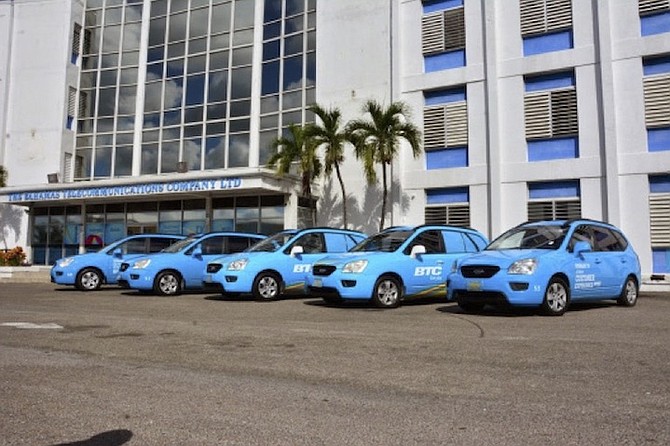By NEIL HARTNELL
Tribune Business Editor
nhartnell@tribunemedia.net
The Bahamas Telecommunications Company’s (BTC) owner is eyeing fixed wireless solutions to reduce construction costs associated with rebuilding network infrastructure in Abaco post-Dorian.
Balan Nair, Liberty Latin America’s (LiLAC) chief executive, told analysts during a conference call to discuss the company’s 2019 third quarter results that the island had suffered “a huge humanitarian disaster” as a result of the category five storm.
While Abaco was “not one of our bigger revenue stream islands”, Mr Nair said it would likely take BTC, its immediate parent, Cable & Wireless Communications (CWC), and Liberty Latin America into 2020 to complete restore communications services.
“On Hurricane Dorian, we think some time next year we’ll get back to pre-hurricane levels,” Mr Nair said in response to an analyst’s questions. “There is two parts to the story. First, Grand Bahama island, where we are focused, where we are completely rebuilding there, and getting there.
“A lot of our B2B (business) customers have come back, our fixed networks are being built and our mobile network is being stood up. Then there’s the other island, Abaco, where it’s really a huge humanitarian disaster there.
“There’s hardly any commercial activity but that will come back. That may take a little bit longer but it was not one of our bigger revenue stream islands anyway. But we are focused on bringing some new technology there that we can use reduce construction costs; a lot more fixed wireless. I feel good about The Bahamas; I feel really good about my team as well and how we responded to that.’
Mr Nair later explained that his reference to “fixed wireless” really meant Long-Term Evolution Technology (LTE) “because we have enough capacity to do that against the density of population centres in Abaco”.
Liberty executives confirmed that Dorian had cost BTC, and the wider group, some $5m in revenue, $8m in operating cash flow and a $5m spend on restoring property and equipment on the Dorian impacted islands during the three months to end-September 2019.
Tribune Business exclusively revealed on Wednesday how BTC had been dealt a $30m blow by Hurricane Dorian with network repairs set to last into 2020.
It suffered a $5m revenue loss for the three months to end-September 2019 as well as incurring some $25m in damages to systems infrastructure in Grand Bahama and Abaco as a result of the category five storm, with Liberty also forced into a $14m one-time write off of property and communications equipment that Dorian “damaged beyond repair”.
Liberty said: “In the third quarter we spent $5m on restoration related to damage caused by Hurricane Dorian in The Bahamas.
“We currently estimate up to $25m of property and equipment additions, inclusive of the $5m already spent, will be required to restore our damaged networks, which is expected to be incurred during the remainder of 2019 and 2020.”
Besides having to contend with Dorian’s wrath, BTC suffered the continued erosion of its mobile subscriber base with the loss of another 4,200 customers during the three months to end-September.
However, this near-2 percent decline occurred at a much slower pace than in the previous period when BTC saw a net 9,300 subscribers leave during the 2019 second quarter.
BTC saw 3,800 pre-paid mobile subscribers, and 400 of the more stable, higher-yielding post-paid subscribers leave during the third quarter, dropping its total customer base from 213,500 to 209,300. It closed September 30 with 184,200 prepaid subscribers and 25,100 post-paid subscribers as Aliv seemingly continues to make inroads into its market share, albeit at a slower pace than before.
Data previously provided by Liberty Latin America showed that, for the 2019 second quarter, a modest gain of 700 post-paid mobile subscribers was more than offset by the loss of another 10,000 pre-paid customers.”
BTC also suffered a 1,300 decline in subscribers for its fixed-line services, which include broadband Internet and telephony. Fixed-line voice and Internet customers fell by 1,200 and 100, respectively, compared to end-June 2019 numbers, leaving the carrier with customer bases of 43,200 and 25,600.
However, BTC did make a net 400 subscriber gain in its TV/video offering, growing this customer base to 6,500. As a result, its net loss of revenue generating units (subscribers) for the 2019 third quarter was kept to 900, although this excludes the mobile business.
BTC closed the third quarter with a total 75,300 subscribers for its TV, Internet and fixed line voice services. Some 128,900 homes are passed by its “two-way” infrastructure.





Comments
Use the comment form below to begin a discussion about this content.
Sign in to comment
OpenID